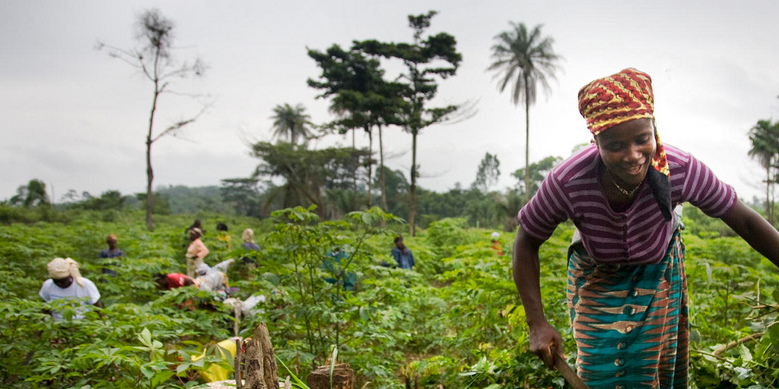
June 10, 2013, by ICCSR
Gender and Responsible Business – What’s the link?
Like many feminists, I have spent much of my life encouraging, supporting, and pressurizing policy-makers to advance gender equality through legislation, and through gender sensitive budgeting and policy development. To this end I have worked with government representatives in the UK, Australia, and internationally, and with numerous non-governmental organizations (NGOs). In the 1980s and 90s I had little contact with private sector organizations in the course of this work. However, when a close friend of mine from the union movement started working with institutional investors to address issues of governance and accountability, I began to explore the relevance of Corporate Government and CSR to my interest in gender equality. The private sector was rapidly becoming more involved in the public domain, and in societal governance, partly as a result of privatization and liberalization, and I began to wonder if the emerging movement for increased corporate accountability included attention to gender issues, or might offer opportunities in this regard.
In 2001, while I was participating in the work of the Women’s Budget Group (WBG), UK, we debated the Kingsmill Review of Women’s Employment and Pay published by the Cabinet Office. This explicitly linked long term business success with equal opportunity for women, and recommended that all companies should be encouraged to conduct equal employment and pay reviews covering all aspects of women’s employment, and to publish relevant data, as a step to improve human capital management. We debated this issue in the WBG, and presented our observations and concerns to the relevant Department of Trade and Industry working group. This was my first piece of work on gender and CSR, and I have spent the last decade exploring this link both as a practitioner and an academic.
In 2003 I joined the ICCSR, Nottingham, as a Visiting Fellow working on gender and CSR. My overarching research interest has been: ‘Can CSR help advance gender equality in organizations, and in society more broadly? If so, how?’ Thus far I have attempted to address these questions with reference to gender mainstreaming, CSR reporting processes, and emerging debates about CSR as a political process of governance. I have remained closely engaged with practice, serving as a member of the Global Reporting Initiative’s Gender Working Group, and as advisor on ‘integrating a gender perspective’ to the UN Special Representative on Human Rights and Transnational Corporations and Other Business Enterprises. I have also collaborated with, among others, UNIFEM, Oxfam International, Plan International, and interviewed numerous women’s NGOs about gender and CSR issues. It seems to me that big questions remain about the link between gender equality and CSR. How do we define responsible business with regard to gender equality?
If gender INequality is a resource for global capital in many respects, via unequal pay, and the army of women working on the margins of global supply chains for example, how can an instrumental business case approach significantly improve women’s lives? Yet, CSR now extends well beyond the business case, to address issues such as regulation and multi-stakeholder governance. In this context, the role of NGOs is deemed particularly important in representing voices from civil society in new governance systems. Yet, how can women’s NGOs, who are vastly underfunded in comparison to other NGO sectors in many countries, be supported to bring their expertise to the table and play their role in creating new rules, standards and norms for responsible business?
There is increasing evidence that without attention to gender equality, core CSR issues such as poverty, environmental degradation, development, human rights and inequality cannot be effectively addressed. Some corporations are doing a great deal to address gender issues not only in the workplace, but also with regard to their supply chains and community impacts. However participation by those on the margins remains essential.
At the forthcoming ICCSR Symposium to be held on June 20th in Nottingham, we will be addressing these themes. Papers will be given on topics such as: Gender equality in the workplace; Gender, business and human rights: Gender in global supply chains and value chains, in agriculture, the garment industry, and other sectors; Gender, business and development; A gender inclusive approach to company-community agreements in the mining sector: Fairtrade as a gender issues; Homeworkers as a CSR issue. Key speakers and panelists from the worlds of CSR, feminism, and from practice, policy and research will share their insights.
See: http://www.nottingham.ac.uk/business/ICCSR/events.php?e=107
By Kate Grosser
Lecturer in Management at La Trobe University, Melbourne, and a Visiting Fellow at the ICCSR, Nottingham.
—————
Image by Christopher Herwig courtesy of the Africa Renewal information programme. The Africa Renewal information programme, produced by the Africa Section of the United Nations Department of Public Information, provides up-to-date information and analysis of the major economic and development challenges facing Africa today. For further information see:http://www.un.org/africarenewal
No comments yet, fill out a comment to be the first

Leave a Reply